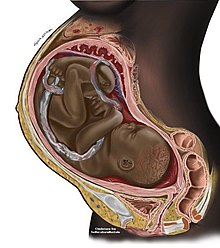
Pregnancy: A Comprehensive Guide
Pregnancy is a transformative journey that brings forth a myriad of physical, emotional, and social changes. It is a time of both joy and trepidation, as expectant parents eagerly anticipate the arrival of their little one. This comprehensive guide delves into the complexities of pregnancy, providing a detailed overview of its stages, symptoms, and potential complications.
Stages of Pregnancy
Pregnancy is typically divided into three trimesters, each characterized by distinct developmental milestones:
First Trimester (Weeks 1-12)
- Conception: Pregnancy begins with fertilization, when a sperm cell fuses with an egg cell.
- Implantation: The fertilized egg implants in the lining of the uterus, initiating the development of the embryo.
- Embryonic Development: The embryo rapidly develops, forming the major organs and systems.
- Morning Sickness: Nausea and vomiting are common symptoms, often referred to as "morning sickness."
- Fatigue: Extreme tiredness is a hallmark of the first trimester.
- Breast Tenderness: Breasts become enlarged and tender as they prepare for lactation.
Second Trimester (Weeks 13-27)
- Fetal Growth: The fetus grows rapidly, and its organs continue to mature.
- Fetal Movement: Expectant mothers may begin to feel the baby’s movements, known as "quickening."
- Increased Energy: Fatigue typically subsides, and energy levels improve.
- Skin Changes: Darkening of the skin around the nipples and a vertical line on the abdomen (linea nigra) may occur.
- Varicose Veins: Increased blood flow can lead to the development of varicose veins.
Third Trimester (Weeks 28-40)
- Fetal Maturity: The fetus continues to grow and mature, preparing for birth.
- Braxton Hicks Contractions: Practice contractions, known as Braxton Hicks contractions, may occur.
- Pelvic Pressure: The baby’s head descends into the pelvis, causing increased pressure.
- Frequent Urination: The enlarged uterus presses on the bladder, leading to frequent urination.
- Swelling: Edema (swelling) in the hands, feet, and ankles is common.
Symptoms of Pregnancy
The symptoms of pregnancy vary from woman to woman and can range from mild to severe. Common symptoms include:
- Missed Period: The absence of a menstrual period is typically the first sign of pregnancy.
- Nausea and Vomiting: Morning sickness is a common early symptom.
- Breast Tenderness: Breasts become enlarged and tender.
- Fatigue: Extreme tiredness is often experienced.
- Frequent Urination: The need to urinate frequently increases as the uterus expands.
- Constipation: Hormonal changes can slow down digestion.
- Mood Swings: Emotional fluctuations are common.
- Skin Changes: Darkening of the skin around the nipples and a vertical line on the abdomen may occur.
Potential Complications of Pregnancy
While most pregnancies progress smoothly, some complications can arise. These include:
- Miscarriage: Loss of the pregnancy before 20 weeks of gestation.
- Ectopic Pregnancy: Implantation of the fertilized egg outside the uterus.
- Gestational Diabetes: High blood sugar levels during pregnancy.
- Preeclampsia: A condition characterized by high blood pressure and protein in the urine.
- Placental Abruption: Separation of the placenta from the uterus before delivery.
- Preterm Labor: Labor that begins before 37 weeks of gestation.
Prenatal Care
Regular prenatal care is essential for monitoring the health of both the mother and the baby. Prenatal appointments typically include:
- Physical Examination: Checking blood pressure, weight, and overall health.
- Ultrasound: Imaging to assess fetal growth and development.
- Blood Tests: Screening for infections, genetic disorders, and other conditions.
- Urine Tests: Checking for protein, glucose, and other substances.
- Education and Counseling: Providing information on nutrition, exercise, and other aspects of pregnancy.
Nutrition and Exercise During Pregnancy
Maintaining a healthy diet and engaging in regular exercise are crucial for a healthy pregnancy.
Nutrition:
- Eat a Balanced Diet: Consume a variety of fruits, vegetables, whole grains, and lean protein.
- Limit Processed Foods: Avoid sugary drinks, processed snacks, and excessive amounts of saturated and trans fats.
- Take Prenatal Vitamins: Supplement with prenatal vitamins to ensure adequate intake of essential nutrients.
Exercise:
- Stay Active: Engage in moderate-intensity exercise most days of the week.
- Choose Safe Activities: Walking, swimming, and prenatal yoga are recommended.
- Listen to Your Body: Rest when needed and avoid overexertion.
Emotional Health During Pregnancy
Pregnancy can be an emotionally challenging time. Common concerns include:
- Anxiety: Worries about the baby’s health and the upcoming birth.
- Depression: Mood swings and feelings of sadness or hopelessness.
- Body Image Issues: Changes in body shape and size can affect self-esteem.
- Relationship Changes: The dynamics of relationships with partners, family, and friends may shift.
Seeking Support
If you experience any emotional concerns during pregnancy, it is important to seek support. Talk to your healthcare provider, a therapist, or a support group.
Preparing for Birth
As the due date approaches, it is important to prepare for birth. This includes:
- Choosing a Birth Plan: Decide on your preferences for labor and delivery.
- Packing a Hospital Bag: Gather essential items for the hospital stay.
- Attending Childbirth Classes: Learn about labor and delivery techniques.
- Practicing Relaxation Techniques: Deep breathing and meditation can help manage labor pain.
Postpartum Care
After giving birth, it is important to receive postpartum care. This includes:
- Physical Recovery: Monitoring for bleeding, infection, and other complications.
- Emotional Support: Providing support for the emotional challenges of the postpartum period.
- Breastfeeding Support: Assisting with breastfeeding and addressing any challenges.
- Contraception Counseling: Discussing birth control options.
Conclusion
Pregnancy is a remarkable journey that brings forth a myriad of physical, emotional, and social changes. By understanding the stages, symptoms, and potential complications of pregnancy, expectant parents can navigate this transformative experience with confidence. Regular prenatal care, a healthy lifestyle, and emotional support are essential for ensuring the well-being of both the mother and the baby.